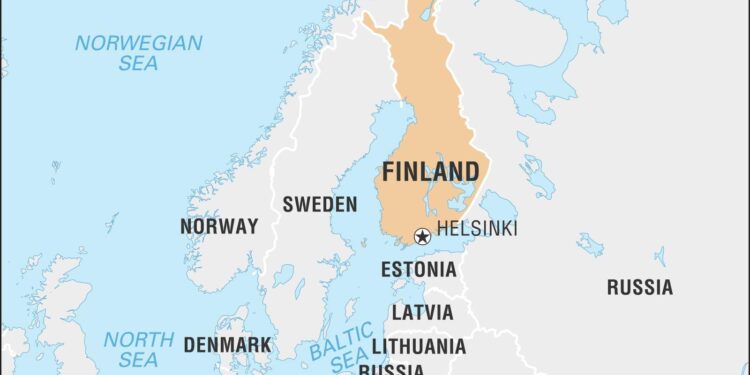Finland has long been synonymous with saunas, vast forests, and pristine lakes, but new insights suggest that the nation’s celebrated happiness extends far beyond its steamy traditions. According to a recent report by The Telegraph, Finland has been crowned the world’s happiest country-outperforming rivals not merely through its cultural quirks, but thanks to deeper societal factors. This article delves into the reasons behind Finland’s continued top ranking on global happiness indexes, exploring how education, social trust, and quality of life contribute to a uniquely contented society.
Why Finland’s Social Trust Outshines Its Famous Saunas
The Role of Work-Life Balance in Finland’s Happiness Formula
In Finland, work-life balance is not just a buzzword but a fundamental pillar underpinning the country’s exceptional happiness levels. Finnish society prioritizes flexible working hours, long parental leaves, and a strong emphasis on quality time outside of work, allowing individuals to recharge and maintain healthy relationships. The government and employers actively foster environments where people can pursue personal interests, spend time with family, and engage in outdoor activities, which in turn lowers stress and increases overall life satisfaction.
Key elements contributing to this equilibrium include:
- Short average working weeks: Finns typically work around 37 hours weekly, providing more leisure time.
- Generous parental leave policies: Both mothers and fathers receive extended paid leave.
- Supportive workplace culture: Encouraging productivity without overtime pressures.
| Aspect | Benchmark | Finland |
|---|---|---|
| Average Weekly Hours | 40+ | ~37 |
| Parental Leave (weeks) | 12-16 | 26+ |
| Paid Vacation Days | 20-25 | 30+ |
How Adopting Finnish Wellbeing Practices Can Transform Your Daily Life
Integrating Finnish wellbeing habits into your routine can profoundly enhance your quality of life by fostering balance, mindfulness, and genuine connection. Central to this transformation is the Finnish concept of sisu-a unique blend of resilience and determination that encourages mental strength in the face of everyday challenges. Alongside this mindset, Finns prioritize spending significant time outdoors regardless of weather, a practice linked to improved mood and reduced stress levels. Simple activities such as daily walks in nature, or even brief moments of quiet reflection, create powerful resets that protect against burnout and nurture a grounded state of mind.
Practicality and intention also stand out in Finnish wellbeing approaches. Their lifestyle emphasizes unplugging from technology to reconnect with family and community, promoting stronger interpersonal bonds and emotional support networks. Prioritizing sleep, enjoying wholesome, locally sourced meals, and maintaining a calm, clutter-free environment contribute to sustained mental clarity. As illustrated below, even small adjustments inspired by Finnish customs can lead to measurable improvements in happiness and productivity:
| Wellbeing Practice | Daily Time Spent | Benefits Observed |
|---|---|---|
| Nature Walks | 30 minutes | Lowered cortisol levels |
| Digital Detox | 1 hour | Improved sleep quality |
| Mindful Eating | 20 minutes | Enhanced digestion & mood |
| Decluttering Space | 15 minutes | Reduced anxiety |
The Way Forward
As Finland continues to top global happiness rankings, it becomes clear that the nation’s well-being extends far beyond its iconic saunas. Factors such as a strong social support system, high levels of trust, and a deep connection to nature contribute significantly to the contentment of its citizens. While the steamy allure of saunas remains a cherished tradition, it is Finland’s comprehensive approach to quality of life that truly sets it apart on the world stage.

















Finland’s global reputation frequently centers on its iconic saunas or pristine natural landscapes, but its true secret to happiness lies beneath the surface-embedded deeply in its culture of social trust. Finnish society boasts one of the highest levels of interpersonal confidence worldwide, fostering environments where citizens feel secure and supported. This unparalleled trust permeates everything from governance to everyday interactions, creating a social fabric where cooperation and mutual respect aren’t just ideals, but lived realities.
Key factors driving this extraordinary trust include: